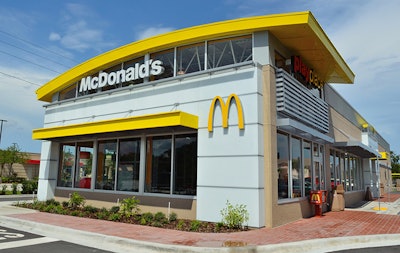
McDonald’s will sell all Russian restaurant locations after more than 30 years of operation in the country, citing an unpredictable operating environment and conflict with the brand’s values.
“McDonald’s and Russia have become so intertwined that it seems impossible to imagine one without the other,” Chief Executive Officer Chris Kempczinski said in a note to employees on May 16. “And yet, unfortunately, that is where we are today.”
McDonald’s opened its first Russian restaurant in 1990. The Moscow location is considered a post-Soviet landmark, giving Russians their first experience with American fast food, according to The Irish Times.
“Some might argue that providing access to food and continuing to employ tens of thousands of ordinary citizens, is surely the right thing to do. But it is impossible to ignore the humanitarian crisis caused by the war in Ukraine. And it is impossible to imagine the Golden Arches representing the same hope and promise that led us to enter the Russian market 32 years ago,” Kempczinski wrote.
The quick service restaurant chain initiated the sale process of its entire portfolio in Russia to a local buyer and is expected to take a write-off of $1.2 billion to $1.4 billion for the move.
All restaurant locations in the country will be “de-arched,” meaning that the McDonald’s name, logo, branding and menu will be removed.
Temporary closures become permanent
The move comes more than two months after McDonald’s temporarily closed Russian stores in response to the invasion.
At the time, Kempczinski said the situation was “extraordinarily challenging for a global brand like ours… We understand the impact this will have on our Russian colleagues and partners.”
“The conflict in Ukraine and the humanitarian crisis in Europe has caused unspeakable suffering to innocent people. As a system, we join the world in condemning aggression and violence and praying for peace,” Kempckinski added.
The impact of the war on Ukraine has been felt throughout the supply chain -- from grain markets to poultry production and processing to foodservice.

















